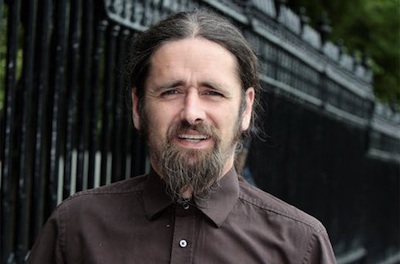
An independent member of the Dublin parliament has admitted that he availed of a backroom process by which prominent public figures and other well connected individuals can avoid motoring offence penalties in the 26 Counties.
He presented his revelation as a bid to uncover low-level corruption in Irish society, but it created a storm of condemnation in the mainstream media, and has sharply divided Irish public opinion.
It came to light earlier this year that Garda Superintendents have a broad authority to rescind motoring penalties in certain situations, but almost nothing is publicly known about the process. This week, both politicians and the media were strongly antagonistic to efforts to shed light on the mechanism.
Speaking in the Dail, Roscommon TD Luke ‘Ming’ Flanagan said he had twice benefitted by having penalty points, imposed for driving while using a mobile phone, removed from his licence. He claimed he had not made requests to do so -- but that a local government official and a Garda police sergeant had separately offered to “take care” of the penalties.
“I did not ask the Garda sergeant in question to get involved but he insisted he should,” Flanagan told the Dail.
“I do not believe it was an attempt to trip me up. I believe it is a culture that has festered for years. All the Garda was doing was what he had learned along the way.”
He added, “It is quite extraordinary to think that a senior county council official would feel confident enough that approaching a senior garda would enable him to have penalty points quashed for a citizen.”
However, he later accepted he had himself acted corruptly in the matter, and revealed that he had in fact written to the Garda in question.
Flanagan was derided in the national media for challenging the power certain officials have to “sort out” low-level issues -- often considered a perk of the job -- while admitting he had taken advantage of it.
Accused of being prideful, arrogant, brazen and self-serving, journalists carried out interviews in his home constituency with those critical of his admissions and general lifestyle, which has (in the past) involved recreational drug use.
‘HARMLESS’ CORRUPTION
The practice of public officials “doing someone a favour” -- with the understanding that a favour can be requested in return -- has been a feature of Irish society for some time. Often linked to the island’s history as a British colony and a consequent disregard for authority, it is more common in rural areas and among the professional classes.
However, these kind of interactions are not normally available to those without connections, such as the young, the poor, immigrants, pensioners and the unemployed.
The practice also leads to progressively higher levels of political corruption, such as the more quietly reported news this week in which former Fine Gael Minister Michael Lowry revealed that undocumented payments between him and a local businessman reached to more than €300,000 ($400,000).
The sum, timing, and origin of the payment (revealed in a taped conversation, broadcast on TV3 on Thursday night) contradicted evidence he previously supplied to a public tribunal on political corruption, leading to allegations that he had perjured himself.
This week Mr Lowry refused to respond to questions on the matter.
Fine Gael’s Justice Minister Alan Shatter, in response to a parliamentary question tabled by Sinn Féin’s Pearse Doherty, confirmed that the Garda police were aware of the tape and were “giving it attention”.
However, he said he could not comment on Mr Doherty’s question on whether an offence had been committed.
![[Irish Republican News]](https://republican-news.org/graphics/title_gifs/rn.gif)
![[Irish Republican News]](https://republican-news.org/graphics/title_gifs/harp.gif)

